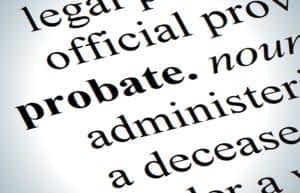When family members discover they’ve been left out of a parent’s estate plan, it can trigger feelings of confusion and frustration. With the ongoing wealth transfer between generations, many anticipate receiving an inheritance, but evolving financial realities often disrupt these expectations. For Nevada families, understanding the legal aspects of disinheritance is essential. Anderson, Dorn & Rader Ltd., a leading estate planning firm in Reno, offers expert guidance for individuals navigating these sensitive situations.
This article provides an overview of inheritance trends, explores possible legal challenges, and identifies when professional legal help is necessary to protect your interests.
According to financial experts, nearly $84 trillion will pass from older to younger generations by 2045, a phenomenon known as the “Great Wealth Transfer.” However, many adult children may not inherit as much as they expect.
Parents are living longer, spending more on retirement, and facing increasing healthcare costs, which can significantly reduce the wealth passed down. Surveys reveal that over half of millennials expect an inheritance of around $350,000 or more, but baby boomers often plan to leave far less. Some don’t plan to leave anything at all, having spent savings on long-term care or lifestyle expenses.
This mismatch in expectations highlights the importance of open family discussions. Anderson, Dorn & Rader Ltd. encourages families to engage in proactive estate planning conversations to avoid misunderstandings and provide clarity on inheritance plans.
In Nevada, children do not have an automatic right to inherit from their parents. If an estate plan explicitly disinherits someone, challenging it can be difficult. However, there are specific circumstances where contesting a will or trust may be legally valid.
Lack of mental capacity can provide grounds to contest an estate plan. If a parent was not of sound mind when drafting their will or trust, the document could be considered invalid. Additionally, undue influence—such as pressure from a caregiver or family member to alter the estate—may also lead to legal challenges.
Errors or misunderstandings are another valid reason to contest a will. For instance, if a parent mistakenly disinherited a child based on false assumptions, such as a belief that the child had financial issues or struggled with addiction, the will or trust may be challenged.
Successfully contesting an estate plan requires clear evidence and professional legal representation. Anderson, Dorn & Rader Ltd. specializes in navigating Nevada’s estate planning laws and offers personalized advice to evaluate your case.

It’s important to identify signs that something may have gone wrong during the estate planning process. A few red flags to watch for include unexplained changes to the estate plan, especially those made shortly before the parent’s death. These alterations can raise questions about undue influence or cognitive decline.
Unknown beneficiaries can also be a cause for concern. If significant assets are left to someone outside the family, such as a new acquaintance or recently involved organization, this may indicate manipulation. Similarly, if one sibling or caregiver receives the majority of the estate without a clear reason, it is worth investigating.
Anderson, Dorn & Rader Ltd. can help uncover inconsistencies in an estate plan and determine if legal intervention is necessary. Their experienced team knows how to gather evidence, analyze documents, and protect your interests through every step of the process.
Navigating estate plans and inheritance disputes without professional help can be overwhelming. Working with knowledgeable estate planning attorneys ensures that you understand your options and rights, minimizing the stress involved in these situations.
Anderson, Dorn & Rader Ltd. provides comprehensive estate planning services in Reno, helping clients access probate records, analyze estate documents, and develop legal strategies. If a parent’s estate plan has gone through probate, their attorneys can help obtain these records to identify beneficiaries and distributions.
The team also offers expert advice on legal strategies. Whether you suspect manipulation, need to access trust documents, or wish to contest an estate plan, their attorneys provide the support necessary to navigate Nevada’s probate courts effectively. Estate planning attorneys offer more than legal expertise—they provide clarity and peace of mind during a time of emotional uncertainty.
Taking the Next Steps with Confidence
If you have questions about your rights or suspect issues with a parent’s estate plan, Anderson, Dorn & Rader Ltd. in Reno is here to help. Their experienced team offers personalized guidance to determine your best course of action. Whether contesting a will, reviewing probate documents, or exploring your inheritance rights, their legal expertise ensures you navigate Nevada’s estate planning laws with confidence.
Why Professional Guidance Makes a Difference
Being excluded from a parent’s estate plan can be difficult, but understanding your legal options empowers you to take action. With trillions of dollars transferring between generations, having a clear plan is essential.
If you are dealing with disinheritance, knowing when to seek professional support is critical. Anderson, Dorn & Rader Ltd. provides expert estate planning services tailored to meet your specific needs, ensuring your questions are addressed and your rights protected.
When most people think about creating an estate plan, they usually focus on what will happen when they die. They typically do not consider what their wishes would be if they were alive but unable to manage their own affairs (in other words, if they are alive but incapacitated). In many cases, failing to plan for incapacity can result in families having to seek court involvement to manage a loved one’s affairs. It does not matter who you are, how old you are, or how much you have—having a proper plan in place to address your incapacity or death is necessary for everyone. Recently, comedian and late-night talk show host Jay Leno had to seek court involvement to handle his and his wife’s estate planning needs due to his wife’s incapacity. Consulting with Reno estate planning lawyers can help you avoid such situations.

A conservator is a court-appointed person who manages the financial affairs for a person who is unable to manage their affairs themselves (also known as the ward). In Nevada, a conservator is known as a Guardian. The conservator is responsible for managing the ward’s money and property and any other financial or legal matters that may arise. They are also required to periodically file information with the court to prove that they are abiding by their duties. To have a conservator appointed, an interested person must petition the court, attend a hearing, and be appointed by a judge. This can be very time-consuming, and there are court and attorney costs that must be paid along the way. Reno estate planning lawyers can help streamline this process and provide necessary guidance.
In January 2024, Jay Leno petitioned the court to be appointed as the conservator of the estate of his wife, Mavis Leno, so that he could have an estate plan prepared on her behalf and for her benefit. Unfortunately, Mrs. Leno has been diagnosed with dementia and has impaired memory. Her impairment has made it impossible for her to create her own estate plan or participate in the couple’s joint planning. According to court documents, Mr. Leno wanted to set up a living trust and other estate planning documents to ensure that his wife would have “managed assets sufficient to provide for her care” if he were to die before her. Right now, Mr. Leno is managing the couple’s finances, but he wanted to prepare for a time when he is no longer able to do so.
On April 9, 2024, the court granted Mr. Leno’s petition. According to the court documents, the judge determined that a conservatorship was necessary and that Mr. Leno was “suitable and qualified” to be appointed as such. During the proceedings, the judge found “clear and convincing evidence that a Conservatorship of the Estate is necessary and appropriate.”
Although there was a favorable outcome in this particular case, it still took several months for Mr. Leno to be appointed by the court. In addition to the initial filings and court appearances, there will likely be ongoing court filing requirements to ensure that Mrs. Leno’s money is being managed appropriately. Had they prepared an estate plan ahead of time, much of this time and hassle would likely have been avoided. Reno estate planning lawyers can assist in preparing these crucial documents ahead of time to prevent such scenarios.
While many people may dismiss the Lenos’ experience as something that applies only to the rich and famous, the truth is that you could find yourself in the same situation (although with a smaller amount of money and property at play) if you are not careful. Let’s use this opportunity to learn from their mistakes.
We can help you and your loved ones regardless of where you find yourself in the estate planning process. Whether you are looking to proactively plan to ensure that your wishes are carried out during all phases of your life, or if you need assistance with a loved one who can no longer manage their own affairs, give us a call. Our team of Reno estate planning lawyers is here to assist you.
Wrongful Death and Probate in Reno: Consulting a Wrongful Death Lawyer in Reno
Wrongful death lawsuits and probate proceedings are both civil legal matters that occur after somebody has died. When the death of a loved one is caused by another individual or entity, it can lead to the filing of a wrongful death lawsuit and, ultimately, the awarding of compensation to surviving family members. Probate is a court proceeding that deals with administering a decedent’s estate, inventorying their accounts and property, paying off creditors, and making distributions to heirs or beneficiaries. Consulting a wrongful death lawyer in Reno can help navigate these complex legal processes.
While probate proceedings are fairly common when a person dies, very few deaths give rise to a wrongful death claim. However, wrongful death and probate can intersect if somebody dies due to another’s misconduct.
The Role of a Wrongful Death Lawyer in Reno
State laws vary on who has the legal authority to file a wrongful death case. There is also considerable state variation on how the proceeds of a wrongful death claim are distributed to survivors. A wrongful death lawyer in Reno can provide the necessary guidance on state-specific laws and procedures.

What Is a Wrongful Death? Understanding with a Wrongful Death Lawyer in Reno
A wrongful death, as the term implies, is a death that results from the “wrongful” action of another, such as negligence, carelessness, recklessness, or intentional conduct. Both individuals and entities, such as businesses and governments, can commit a wrongful action that leads to death. For example:
Wrongful death is a matter of civil law, although in some cases—perhaps most famously the O.J. Simpson case—a person’s death can lead to both criminal and civil charges. To navigate such cases, the assistance of a wrongful death lawyer in Reno is crucial.
Who Can File a Wrongful Death Lawsuit? Consult a Wrongful Death Lawyer in Reno
A wrongful death lawsuit can award damages to pay for the decedent’s medical bills, pain and suffering, and funeral expenses. It can also provide money to survivors for their economic and emotional injuries, such as loss of financial support, household services, and love and companionship.
The question of who can file a wrongful death lawsuit comes down to state law. Generally, states allow one of the following to sue:
In states where survivors are allowed to sue for wrongful death, the right to file suit is typically prioritized based on the closeness of the relationship, with a surviving spouse and children given priority. Some states allow groups of survivors to sue. Others give priority to family members and give them a limited amount of time to file a lawsuit, and, if they fail to do so, additional relatives and even unmarried domestic partners can then sue.
There are also certain states where only the decedent’s probate estate can file a wrongful death lawsuit. In these states, the personal representative of the probate estate (for example, a family member or a lawyer) is the only party who has the legal authority to act on behalf of the estate and file the lawsuit. The personal representative of the probate estate might be someone who was named in the decedent’s will or appointed by a judge according to state law if the decedent died without a will. Consulting with a wrongful death lawyer in Reno can help clarify these rights and responsibilities.
Wrongful Death, Estates, and Probate: Insights from a Wrongful Death Lawyer in Reno
Probate is not always necessary when someone dies; there are instances when the value of the decedent's money and property is small enough to avoid probate, or the family uses estate planning tools such as living trusts to avoid it.
Wrongful death claims, as previously mentioned, are relatively uncommon. In 2022, there were just over 227,000 preventable deaths caused by injuries nationwide and not all of these were wrongful deaths.
Even if a person has no accounts or property or if their estate is otherwise eligible to skip probate, numerous factors can make opening an estate and filing for probate necessary to resolve a wrongful death claim.
Here are some areas where a wrongful death claim overlaps with opening an estate and engaging the probate court:
To summarize, if a wrongful death lawsuit is filed, it is likely to trigger probate and court involvement considerations in one way or another. The specific ways in which wrongful death and probate intersect, however, are largely dependent on state law. Consulting a wrongful death lawyer in Reno can help navigate these complex intersections.
Who Gets the Money from a Wrongful Death Lawsuit? Consult a Wrongful Death Lawyer in Reno
Determining who benefits from a wrongful death settlement or jury verdict, like other aspects of a wrongful death lawsuit, comes down to state statute.
The different ways that states approach the distribution of damages awarded in a wrongful death lawsuit include the following:
As these examples show, there is a high degree of variability among states about wrongful death lawsuit award distributions. States may give significant latitude to family members to decide how the proceeds should be split or strictly adhere to statutory provisions.
States also vary on the types of damages that can be awarded in a successful wrongful death claim. Most state laws allow economic and noneconomic damages to be recovered, but they may give itemized descriptions of the specific damages that can be awarded to particular survivors and distinguish between damages recoverable by survivors and recoverable by the estate. In some states, each heir must present evidence to the court of their losses to receive a share of the wrongful death damages. A wrongful death lawyer in Reno can help navigate these state-specific rules and ensure fair distribution.
Talk to a Wrongful Death Lawyer in Reno About Wrongful Death and Settling an Estate
Closing the book on a loved one’s estate can be procedurally complicated and emotionally difficult no matter the circumstances of their death, but if their passing also involves a wrongful death claim, the situation can become much more emotional and increasingly complex.
Whether you are a personal representative or family member responsible for filing a wrongful death lawsuit, an heir seeking to claim a portion of a wrongful death payout, or you want to make sure that your estate plan anticipates the possibility of a wrongful death and addresses how to best deal with it, our attorneys can help.
Contact us to set up a time to talk to a wrongful death lawyer in Reno about the intersection of wrongful death, probate, and estate law.
Estate planning is a vital step in securing your legacy and ensuring that your assets are distributed according to your wishes. However, one crucial question often derails even the most well-thought-out estate plans: "Are my beneficiary designations up-to-date and accurate?" As estate planning attorneys in Reno, we at Anderson, Dorn & Rader Ltd. are here to help you understand the importance of beneficiary designations and how to ensure they align with your overall estate plan.

Beneficiary designations are instructions you provide to financial institutions, insurance companies, and retirement plan administrators, specifying who should receive the proceeds of your accounts upon your death. These designations override your will and trust, making them a crucial element of your estate plan.
Beneficiary designations ensure that your assets are transferred quickly and directly to the intended recipients without the need for probate. This can save time, reduce legal fees, and provide immediate financial support to your beneficiaries. However, they must be carefully managed to avoid conflicts and ensure they reflect your current wishes.
One of the most common mistakes is failing to update beneficiary information after major life events such as marriage, divorce, the birth of a child, or the death of a loved one. Outdated beneficiary designations can lead to unintended recipients, causing family disputes and legal complications.
Naming minor children as beneficiaries without establishing a trust or appointing a guardian can create legal challenges, as minors cannot legally manage inherited assets. Instead, consider setting up a trust or appointing a guardian to manage the assets until the children reach adulthood.
Failing to name contingent beneficiaries—those who will inherit if the primary beneficiary predeceases you—can result in your assets becoming part of your probate estate, defeating the purpose of having beneficiary designations. Always include contingent beneficiaries to ensure your estate plan is comprehensive.
If your beneficiary designations do not align with your will or trust, the designations will take precedence, potentially leading to outcomes that contradict your estate planning intentions. For example, if your will leaves all assets to your spouse, but your beneficiary designations name a former spouse, the former spouse will receive those assets.
Conflicting information can lead to legal disputes among family members, causing delays and increasing the cost of estate administration. Ensuring that your beneficiary designations are consistent with your overall estate plan helps prevent such conflicts and ensures your wishes are honored.
Take the time to review all your financial accounts, insurance policies, and retirement plans to ensure the beneficiary designations are current and accurately reflect your wishes. This includes checking for primary and contingent beneficiaries.
Working with experienced estate planning attorneys in Reno can help you navigate the complexities of beneficiary designations. An attorney can provide guidance on the best strategies for aligning your designations with your overall estate plan and ensure that all legal requirements are met.
Make it a habit to review and update your estate plan, including beneficiary designations, at least once a year or after significant life events. Regular updates help ensure that your estate plan remains accurate and effective, providing peace of mind for you and your loved ones.
Beneficiary designations play a critical role in your estate plan, but they are often overlooked. By understanding their importance, avoiding common mistakes, and ensuring they are consistent with your overall estate plan, you can safeguard your assets and ensure your legacy is managed according to your wishes.
Contact Anderson, Dorn & Rader Ltd. for a consultation to learn how real estate administration works and how you can properly prepare for it. Let us help you navigate the legal landscape to secure your legacy and provide peace of mind for your loved ones.
Ensuring you have a well-designed strategy to safeguard your valuable assets and property is of utmost importance, and this often requires utilizing tailored tools that suit your unique circumstances. One option to explore within your estate planning is the inclusion of a limited liability company (LLC) to safeguard certain accounts and property.

Understanding a limited liability company (LLC)
A limited liability company (LLC) is a business structure that allows for the ownership of diverse accounts and property. Its ownership rests with the members who contribute either funds or assets to the LLC. The nature of an LLC can vary based on the number of individuals involved, resulting in either a single-member or multi-member configuration. The management of the LLC can be conducted by individual members or by a manager elected by the members.
Expanding the scope of ownership for an LLC
An LLC can own more than just a business. It can also hold various types of accounts and property, such as:
Real estate: Whether it's a second home, rental property, or a property passed down for generations, an LLC can own it.
Investments: An LLC can be used to pool the funds of multiple individuals and invest in assets with a larger volume.
Expensive or high-risk assets: Items like airplanes and boats can be owned by an LLC to provide liability protection.
The advantages of including an LLC in your estate plan
Asset Protection
Including an LLC in your estate plan can offer several benefits, with asset protection being one of the key considerations. As an LLC is considered a separate legal entity, its creditors typically can only pursue the LLC's assets and property, not those of the LLC members. Properly setting up and maintaining the LLC can help prevent personal creditors of the members from accessing the LLC's accounts and property to satisfy their claims. Please keep in mind that certain states may not offer the same degree of protection against personal creditors for single-member LLCs. In such cases, personal creditors may pursue the LLC interests to satisfy their claims, as there are no other members who would be negatively impacted by the seizure of the LLC's assets and property.
Probate Avoidance
When your assets are owned by an LLC, any property or accounts transferred to it during your lifetime, or transferred through operation of law upon your death, can bypass the costly and time-consuming probate process. Probate only handles the transfer of assets that were solely owned by you at the time of your death. By utilizing an LLC, the accounts and property are owned by the LLC, not by you. However, if you hold membership interest in your name, the transfer of this interest at the time of your death may require going through the probate process.
Incorporating an LLC into your estate plan
The process of incorporating an LLC into your estate plan involves creating the LLC during your lifetime and transferring your accounts and property to the LLC or designating it as the beneficiary of your accounts and property upon your death. You can also purchase property or open accounts in the name of the LLC. As the individual establishing the LLC, you will assume the role of a member, and depending on the chosen management structure, you may have the opportunity to oversee the operations of the LLC. If you are married, your spouse can also become a member, and you have the flexibility to include additional members in the LLC at a later stage. However, adding members who don't contribute their money or property may result in gift tax consequences. The LLC will own the accounts and property, and it will operate as a separate entity from its members, providing a level of asset protection. Upon your death, the transfer of ownership interest in the LLC may be the only necessary step, and the accounts and property owned by the LLC will remain under its ownership.
Operating Agreement for LLCs in Estate Planning
LLCs generally have an operating agreement that sets out the rules for managing and transferring a member's interest in the LLC. If you currently own an LLC without an operating agreement or need to update it, it is recommended that you contact an experienced business law attorney with expertise in estate planning as soon as possible. When incorporating estate planning into your operating agreement, consider including the following provisions:
1. The identification of the LLC members.
2. The percentage of ownership each member holds.
3. The procedure for resolving conflicts between members.
4. Any restrictions on a member's ability to transfer their membership interest, including transfers to a trust.
5. The fate of a member's interest if they pass away (in most cases, the terms of the operating agreement govern).
Trust Agreement for LLC Membership Interest
A Trust Agreement can provide an additional layer of protection for your LLC membership interest within your estate plan. By transferring your membership interest to a revocable living trust, you can act as the creator, trustee, and beneficiary of the trust. This arrangement allows you to continue managing the LLC and enjoying its benefits as the trustee of the trust, rather than as an individual. Since the trust becomes the owner of the membership interest, transferring it won't require going through the probate process, as the trust itself doesn't die. Even after your death, the trust can continue to own the membership interest as specified in its instructions. It can include provisions for a successor trustee to manage the LLC on behalf of the trust's beneficiaries. Alternatively, you can instruct the trust to distribute the membership interest to a designated beneficiary at a specified time or upon your death, granting them control over the membership interest. If you're considering creating a trust agreement, it's advisable to seek the assistance of an experienced estate planning attorney to ensure it aligns with your goals and objectives.
Best Practices for Using an LLC in Estate Planning
To fully capitalize on the advantages offered by an LLC in your estate plan, it's crucial to adhere to all the rules and regulations associated with its operation. Since an LLC is a separate legal entity, it should be treated as such. This entails following specific formalities, such as submitting your annual report to the relevant state government office and maintaining distinct records of all transactions and meetings involving the LLC. It's equally important to keep your personal finances and assets separate from those of the LLC. Avoid using the LLC's bank account as your personal fund to maintain clear separation and protect the integrity of the LLC.
Commencing January 1, 2024, reporting companies that are classified as LLCs will need to submit a Beneficial Ownership Information Report to the Financial Crimes Enforcement Network of the Department of the Treasury. This report should include the name, birthdate, address, and unique identification number of all beneficial owners of the LLC, along with an acceptable identification document's image and issuing jurisdiction. A beneficial owner is an individual who possesses or exercises significant control over 25% or more of the ownership interest in the company. For LLCs formed after January 1, 2024, company applicants must provide their name, birthdate, address, unique identification number, issuing jurisdiction, and image of an acceptable identification document. A company applicant refers to the individual who creates the entity or registers it to do business in the United States (for foreign reporting companies) or the person mainly responsible for directing or controlling another individual's submission of the document.
What are your next steps in estate planning?
If you aim to protect your assets and secure your family's future, taking the necessary steps is paramount. Crafting a well-designed estate plan tailored to your unique needs can be instrumental in achieving your objectives. If you're interested in learning more about how incorporating an LLC can assist you in.
We extend our warmest congratulations on your new home purchase. Whether this is your first time buying a home or an upgrade/downsize, acquiring a new home is a significant event that brings about change in your life. Properly prepare for the worst by protecting your newest accomplishment. Here are three essential tips to keep in mind now that you have the keys to your new home, including important considerations for estate planning.

1. Make Sure to Update Your Address
After moving into your new home, it is crucial to update your address with the relevant authorities. Start with visiting your local United States Postal Office to obtain a form for change of address. Alternatively, you can update your address online. This step will help the postal service forward your mail to your new address.
It is also a crucial step in protecting your property to update your address with the Internal Revenue Service (IRS) by filling out Form 8822. This will ensure that you receive all important tax notices and refunds. Additionally, make sure to update your address with your local state tax agency.
2. Ensure Consistency Between Your Home Title and Estate Plan
One aspect of new homeownership that often goes overlooked is the need to align your home title with your estate planning objectives. After purchasing your new home, review the deed to confirm how the property is titled. Next, review your estate planning documents to ensure the property has been titled correctly to achieve your estate planning goals.
For instance, if your previous plan included a specific provision for the distribution of your old property, you will need to update this provision to reflect the current status. Similarly, if you have a trust-based estate plan to avoid probate, you will need to confirm that your new property is titled in the name of the trust and not in your individual name. Ensuring consistency between your home title and estate plan will help protect your assets and ensure your wishes are carried out effectively.
3. Review Your Life Insurance Policy and Beneficiary Designations
If you have a mortgage payment to make on your new home, it's likely you'll have a large monthly expense to pay off each month. To safeguard your loved ones, it is important to review your life insurance coverage. Ensure you have adequate life insurance coverage to address the mortgage payment in the event of your passing, particularly if you have a surviving spouse or children who are likely to remain in the home. Even if they decide not to reside in the property, life insurance can offer valuable resources during a potentially emotionally difficult period. Even if they choose not to stay in the home, life insurance can provide valuable assets during what can be an emotionally challenging time.
It's also a good idea to review your beneficiary designations. Life changes can happen quickly, and this may be overlooked. If your designations don't match up with the rest of your estate plan, you might inadvertently disinherit a family member or have the money go directly to an individual without any guidance.
Finally, with your new home comes the need for homeowner's insurance. Contact your insurance agent to confirm that you are receiving all eligible discounts. Many insurance providers offer package discounts when you combine services. By already having car insurance with the same company as your homeowner's insurance, you may qualify for a lower rate compared to purchasing each policy separately. Additionally, homeowners often receive discounts that renters do not.
We understand that buying a new home is a significant milestone, and we are here to assist you. If you need help aligning your new purchase with your estate planning goals, contact us today. We can ensure that your new home and estate planning are aligned to achieve your objectives, including the important aspect of estate planning for homeowners.
For over a quarter of a century, the National Safety Council has designated June as a
month of paramount importance - a time to honor and prioritize safety at a national
level. This annual celebration, known as National Safety Month, serves as a powerful
reminder of the critical role that safety plays in our lives.
The aim of this month-long campaign is to increase public awareness about the most
significant safety and health risks faced by people in the United States. While many
people are aware of common safety hazards, such as physical injuries, they may not
realize that incapacity or death can result in substantial financial and emotional
consequences for themselves and their families. A revocable living trust is a legal tool
that can help protect you and your loved ones from the costs, uncertainty, and chaos
that may arise in the event of your incapacity or death.
Protection by a Revocable Living Trust for Yourself
Just like anyone else, you face the risk of experiencing a catastrophic accident or illness
that could leave you incapable of taking care of yourself or your loved ones. This
incapacity might be temporary, or it could last until your eventual death. The total cost of
incapacity can be difficult to calculate and can include lost wages, as well as the
expenses of required medical care. These expenses may include requiring assistance
with daily activities such as bathing, eating or dressing. However, it can quickly become
very costly - the average cost of assisted living in the United States in 2020 was
approximately $4,300 per month.
A revocable living trust is an essential legal tool that helps protect you and your loved
ones by providing instructions for how you will be financially supported during your
incapacity. With a revocable living trust, you can choose who will manage your finances
when you are no longer able to handle them yourself. There’s no better time than now
to establish a revocable living trust because it is revocable, which means that you can
change it at any time and alter it as your life circumstances change, as long as you have
the mental capacity.
Protection by a Revocable Living Trust for Your Loved Ones
Your loved ones’ financial and emotional well-being is also protected by a revocable
living trust. It ensures that your wishes are clearly outlined for what should happen in
the event of your incapacity or death. This prevents your loved ones from having to speculate
on your desires or worse, having to follow state law to determine who should handle your finances and end-of-life affairs.
Probate fees, which vary significantly by state, can also be very expensive. For
example, in California, attorney and executor fees for probating an $800,000 home
could be as high as $38,000, as set by law. A revocable living trust can help avoid
probate and those high accompanying fees.
Revocable living trusts also offer privacy protection. Without the instructions provided in
these trusts, family members often have to resort to public court proceedings. This
means that the court and other curious individuals may pry into your private affairs.
Furthermore, these types of trusts can provide basic martial deduction planning to
maximize the use of you and your spouse’s estate tax exemptions. This helps to reduce
your loved ones’ estate tax burden, after your death. Finally, by using this legal tool, you
can protect the money you leave to your loved ones from their creditors.
Properly Funding Your Revocable Living Trust
To ensure that a revocable living trust serves its intended purpose, it must be properly
funded. This means that any property you own must be transferred to the trust, or for
certain assets, the trust must be named as the beneficiary. Failure to properly fund your
trust may result in the need for probate. To avoid this, it is essential to review any
correspondence you have received from your attorney regarding which accounts and
properties should be owned by the trust or designated as beneficiaries. It is especially a
good time to do this in the month of June, which is National Safety Month!
Given the importance of the instructions contained in a revocable living trust, it is
advisable to review them annually to ensure that they still align with your final wishes. If
changes are necessary, it is recommended that you seek assistance from a
professional to update your trust accordingly. This will ensure that your trust continues
to serve you and your loved ones during times of incapacity and after your passing.
Death is a delicate subject, but can be made simpler with proper planning. In the best case scenario, all paperwork and assets associated with a passing loved one is prepared with the utmost detail prior to death, allowing friends and relatives to fondly remember the deceased and take time to grieve.
Anderson, Dorn & Rader, and the estate planning business as a whole, aims to simplify the legal processes surrounding death so legacies can be transferred to surviving loved ones in a fair, stress-free manner. To accomplish this, savvy individuals will often take measures to ensure they don’t burden their surviving relatives with undue complications like the probate process.
Several tools are available through qualified attorneys to keep your property and monetary assets out of probate. Among these, establishing co-ownership of bank accounts and home titles, as well as lining up beneficiaries on investment and insurance accounts are great to start with. But a revocable living trust is one of the most favored comprehensive options that an individual can set up to avoid probate. Let’s check it out:

A trust is a fiduciary arrangement that grants a third party, or trustee, the legal permission to hold and manage assets on behalf of a beneficiary or beneficiaries. A living trust is enacted while an individual is still alive, rather than upon death. Arrangements can be made to grant you oversight duties on your own living trust until you become incapable of soundly managing your assets, or pass away. Upon your incapacitation or passing, the successor trustee assumes responsibility over the assets in the trust and manages them on behalf of all involved beneficiaries.
The Probate process involves transferring ownership of all monetary assets and property that haven’t been assigned to beneficiaries, or don’t contain a pay-on-death or transfer-on-death designation upon your passing. Often times with probate, the court gets involved, and the long-winded process to account for the assets ensues.
With a trust, your assets are ready to be transferred to your beneficiaries upon your death, if they haven’t already been transferred to the trust while you’re still alive. This puts probate out of the question, as your assets are all accounted for and can be distributed in a timely manner.
Even better, trusts can incorporate pretty much any category of asset: from real estate, to stock holdings, to bank accounts, to family heirlooms. This keeps your legacy from being administered through the probate court, ensuring everything you worked for ends up in the hands of the individuals you deem as successors. Not only does this eliminate costly court costs, but it keeps your records out of the public’s eye and enables beneficiaries to remember the deceased and carry on the good fortune of the trust without running into road blocks.
The language and investment surrounding the establishment of a trust can be daunting, often prompting individuals to delay the process or put it off entirely. But to plan without a doubt where your assets will end up, and with whom, it’s vital to create a trust. It’s peace of mind for both you and your loved ones when you pass.
Planning the details around your death is sometimes a difficult topic to breach, but can be made simpler with the help of your family and knowledgeable attorneys like Anderson Dorn & Rader. While you are ultimately at the helm when it comes to important decisions, our estate planning group truly cares about maximizing the legacy you will leave to your loved ones. For any questions about how to start the trust formation process, please give us a call or fill out our contact form. We look forward to bringing you and your family peace of mind.
Estate planning can be a very difficult process. While it’s not brain surgery, making the decision to move forward with the planning requires us to face the fact that we will not live forever. This thought can stop many people right in their tracks. Others talk themselves out of seeing a qualified attorney to put together an estate plan based on some of the following common myths:
 When we hear about estate planning on the news or read about it on the internet, it is usually in regards to a wealthy businessman or celebrity who made some error, did no planning, or has family members who are angry about the planning that was actually done. The topic catches people’s attention: Rich people have so much that surely they need planning and can afford to have the planning done correctly. By comparison, when the average person thinks about their own property and planning needs, they assume that it is not necessary because they do not have anything close to Bill Gates’ billions.
When we hear about estate planning on the news or read about it on the internet, it is usually in regards to a wealthy businessman or celebrity who made some error, did no planning, or has family members who are angry about the planning that was actually done. The topic catches people’s attention: Rich people have so much that surely they need planning and can afford to have the planning done correctly. By comparison, when the average person thinks about their own property and planning needs, they assume that it is not necessary because they do not have anything close to Bill Gates’ billions.
However, this could not be further from the truth. Estate planning is about more than just the money. While proper planning allows you to determine who gets your money and property upon your death, the planning process also addresses what happens if you become incapacitated and someone has to make decisions on your behalf--a far more likely scenario. If you have not done any planning, the court will have to appoint someone to make your medical and financial decisions for you. This can be very time consuming, expensive, and public. It can also wreak havoc on a family if they disagree about who should be appointed and how decisions should be made.
Even for those of modest means, who gets your hard-earned savings when you die is an important consideration. Without any planning, state law will decide who gets what—and many times, what the government’s best guess as to what you would want is contrary to what you actually want. But, because you did not take the opportunity to formalize your wishes in an estate plan, the state has to step in and do it for you.
 For many married couples, it is common to own property or bank accounts jointly. If these assets are owned jointly or as tenants by the entirety, when one spouse dies, then the surviving spouse automatically becomes the sole owner. In most cases, this is the desired outcome for married individuals.
For many married couples, it is common to own property or bank accounts jointly. If these assets are owned jointly or as tenants by the entirety, when one spouse dies, then the surviving spouse automatically becomes the sole owner. In most cases, this is the desired outcome for married individuals.
However, this approach can be dangerous. While it is convenient for assets to pass automatically to the surviving spouse, this outright distribution offers no protection. What happens if, after your spouse dies, you get into a car accident and are sued? If the assets you owned jointly automatically became yours alone, this money and property are available to satisfy any judgment that could be entered against you resulting from a lawsuit.
Additionally, what if, after you die, your spouse gets remarried? If the brokerage account you owned jointly becomes your spouse’s only, your spouse is now able to spend it all in any way he or she wants without any consideration for your wishes or the next generation. Your spouse’s new spouse could go out and buy a sports car with the money you intended to pass to your children. With blended families being common today, this is a real concern for many people.
Estate planning does not mean that you have to disinherit your spouse. Rather, it means the two of you can sit down and plan out what happens to your joint property and accounts upon either of your deaths, ensuring that the survivor is provided for and that any remaining money and property are gifted in a way that is agreeable to both of you.
Many people believe that once they have created a will—whether drafted by an experienced attorney, or using a DIY solution or online form— they have avoided probate. Unfortunately, they are wrong.
While a will is a great way to designate a person to wind up your affairs once you have passed, determine who will get your hard earned savings and property, and, if necessary, appoint a guardian to care for your minor children, this document has to be submitted to the probate court to begin the process of distributing your money and property. The level of involvement by the probate court can vary depending on the circumstances, but this process is not private, as the will becomes a matter of public record.
Summary Proceedings: In some states, if the value of your estate (i.e., what you own at your death) is below a certain monetary threshold, then anyone who is entitled to inherit from the decedent can file a petition and have the property distributed outside of the traditional probate proceedings. The filing may require a court appearance and formal legal notice to anyone who might be interested before allowing your property to be distributed.
Affidavit Procedure: Some states allow for an affidavit to be used to collect and distribute a decedent’s money and property. In some states, this affidavit can be self-executed, while others require that the document be filed with the court. Generally, affidavits require the passing of time from the date of a decedent’s death—ranging from a few days to a few months. After that, a “successor” to the decedent (a spouse or heir) signs the affidavit and presents the affidavit to collect the decedent’s assets for distribution to his or her rightful heirs.
Supervised Probate: With this type of proceeding, the probate judge oversees every step of the administration process and has to approve of the Personal Representative’s actions. During a supervised probate, all pleadings and required documents have to be filed with the probate court and then served on interested persons or parties. This can be a very time consuming and expensive process. Each time the Personal Representative has to take an action, a legal pleading has to be filed and served on the interested party, which, in contentious situations, opens up the possibility for disagreements and attorneys’ fees.
Unsupervised Probate: In cases where there are no controversies and the parties all get along, an unsupervised probate administration may be the best option. In this situation, although the administration is not supervised by a court, there are still actions the Personal Representative needs to take, but the Personal Representative may not be required to file petitions and documents for each of those steps. However, a Personal Representative may be required to file some steps, such as the preparation of the inventory, with the court and the interested parties, but no corresponding hearing is scheduled. While this is less complicated and possibly less expensive than a supervised probate, it can still be time consuming and your financial and personal affairs would become a matter of public record.
We are here to help answer any questions you may have about estate planning, the estate planning process, or probate. Together, we can craft a one-of-a-kind plan to ensure that you and your family are properly protected. Give us a call today.
Q: What is Probate?
A: Probate is designed to create a “final accounting” upon death. It is the legal process of “proving up” a Will, or verifying that a Will is valid, takes place in one of two instances. First, if a person dies leaving behind a Will, or second, if the deceased has died intestate, that is, has not left behind a Will or estate plan of any type or the Will cannot be found.
Q: Does the Probate process take a long time?
A: Depending on the complexity of the estate and the thoroughness with which accounting has been carried out before death, probate can either be a relatively simple task or a daunting one. Be aware that no matter the situation, probate may be a lengthy process often taking months or possibly years to play out, and one which may take a considerable amount of an executor’s time.
To summarize the process, probate can be broken into six basic steps:
Each of these steps involve legal documentation and validation, and more importantly, proper accounting each step of the way.
Q : What is Probate Court?
A: Probate begins and ends with the special Probate Court set up in each state to handle estate issues. (Sometimes known as the Orphan’s or Chancery Court in certain states.) All actions taken regarding the estate are accountable to this court, and must be noted and reported regularly. This court is staffed by special judges qualified to oversee estate resolution issues.
Q: Does the Trust Administration process take a long time?
A: To summarize the process, trust administration can be broken into five basic steps:
Although the trust administration process seems relatively straightforward, there are several reasons it can sometimes be drawn out over several months or even years. The first step, the inventory of assets, must be completed before the trust administration can begin, and this can be difficult to complete depending upon the prior organization and the size and complexity of the decedent’s assets. Next, the 706 estate tax return must be filed within 9 months, or 15 months if an extension is filed. Often, it is prudent to wait until the last minute to file this form. If the spouse of the decedent is in failing health and may pass away before the deadline, then both 706 forms can be used to maximize tax advantages to the estate. The final step, asset distribution, cannot take place until the 706 has been filed, and even then should not take place until the “Closing Letter” is received from the IRS certifying acceptance of the 706 return. This closing letter will take a minimum of 6 to 8 months, and as long as 3 years, to arrive after the 706 is filed. In addition, there may be a state estate or inheritance tax return required, even if a federal return is not required.
Q: I thought that a living trust avoids probate and attorney fees. Why do I have to pay more fees?
A: While having a living trust can significantly reduce costs compared to probate, there is still a considerable amount of work to be done in properly administering even a simple living trust. The services of an attorney are required, and that person or firm should be compensated fairly for their services. It is important to remember that the fees allowed for trust administration are usually much lower than those for probate, and there is generally less work involved, as there is less involvement of the courts and state bureaucracy.
Q: Can I pick and choose what assets go into the “B” trust?
A: The answer depends upon the language of the trust document. Certain trusts include “pick and choose” language that allows trustees to selectively place assets into the “B” trust.
Q: How do I transfer the car(s) into my name?A: If you are a relative of the deceased, this is simple in most states. To transfer the title of vehicles owned by the deceased, simply take the death certificate to the DMV, and perform the transfer, paying whatever fees they require. If not a relative, bringing along the will and or any trust documents indicating your status should be sufficient.
Q: What do I do about Social Security?
A: Social Security will continue to send out benefit checks until they are notified of an individual’s death. The executor/spouse/trustee should contact the local Social Security Administration office and notify them of the death, or if a benefit check is received, send it back with a letter notifying them. This is important. If checks continue to be deposited, the recipient can incur liability later when Social Security learns of the recipient’s death.
 When we consult with clients, we often hear many of the same questions. With this in mind, we present a hypothetical question-and-answer session with a Reno estate planning lawyer in this post.
When we consult with clients, we often hear many of the same questions. With this in mind, we present a hypothetical question-and-answer session with a Reno estate planning lawyer in this post.
To die without an estate plan is called dying intestate. Under the rules of intestacy, the probate court would supervise the administration of the estate. Creditors would be given an opportunity to come forward seeking satisfaction, an estate is inventories and valued, disputes are resolved, and ultimately the assets would be distributed under intestate succession laws.
That’s the good news, but the bad news is that it is very possible that your assets would not be distributed in accordance with your wishes. For example, if you are happily married, you have no children, and your parents are still living, you would probably want your spouse to inherit everything. In Nevada, under intestate succession rules, your spouse would inherit half of your separate property, and your parents would inherit the rest. Intestacy law does not appropriately deal with most issues that arise with separate property. Further, intestacy law does not account for many modern day families, such as blended families with step-children, non-traditionally married couples, and a myriad others.
There is no reason to surrender control of your estate to the judicial process when it is so easy to engage the services of a licensed Reno estate planning lawyer.
It is true that there are some types of trusts that are used by high net worth individuals that are exposed to the federal estate tax. However, there are other types of trust that can be quite useful for people of relatively ordinary means.
Far and above the most common is the revocable living trust. If you use a last will, it would be admitted to probate after you die. The court would provide supervision, and the executor would handle the estate administration tasks. But this process will take eight or nine months to a year to run its course, and inheritors receive nothing during this interim. There are also innumerable expenses that pile up during probate, often at a cost between 4% up to 8% of the estate value.
If you use a living trust instead, the trustee that you name in the trust agreement would be empowered to distribute assets to the beneficiaries outside of probate. This is one advantage, but there are a number of others, including the option to protect an inheritance through a trust against lawsuits, creditors, divorcing spouses, or other predators.
A living trust is beneficial whenever a client has a goal to avoid probate and make the process easy for their loved ones. It's not only for wealthy people, but for people who want to better take care of their life planning.
Since the Internal Revenue Service requires you to report all sources of income, you may assume that inheritances that you leave to your loved ones would be taxed. In actuality, inheritances are not subject to taxation, with the exception of inheriting retirement accounts (such as traditional IRA or 401(k) accounts).
There is, however, a federal estate tax that might apply to your estate before everything is distributed to the beneficiaries as an inheritance. But, the vast majority of people do not have to be concerned about the estate tax because there is a VERY large exclusion. Only the portion of your estate that exceeds the amount of this exclusion would be taxed. At the time of this writing in 2019, the exclusion stands at $11.4 million.
These are a few short questions that we frequently hear from our clients, and you can ask your own if you attend one of our upcoming Webinars. The information sessions that we hold provide a treasure trove of useful information, so we strongly encourage you to attend the Webinar that fits into your schedule. To get all the details, visit our Webinar page and follow the simple instructions to register for the date that works for you. Starting in 2019, we are offering Webinars semi-monthly in the evening to accommodate those people that cannot attend during the middle of the day.
 The idea of estate planning might be one of the scariest things you have to confront as an adult. After all, nobody wants to think about their death. Or incapacity. But estate planning does not have to make chills run down your spine. On the contrary! Estate planning is empowering for both you and your family and allows you to live confidently knowing that things will be taken care of in the event of your passing or incapacity. Remember, estate planning is not just for the ultra-rich. If you own anything or have young children, you should have an estate plan. Read below to find out reasons why.
The idea of estate planning might be one of the scariest things you have to confront as an adult. After all, nobody wants to think about their death. Or incapacity. But estate planning does not have to make chills run down your spine. On the contrary! Estate planning is empowering for both you and your family and allows you to live confidently knowing that things will be taken care of in the event of your passing or incapacity. Remember, estate planning is not just for the ultra-rich. If you own anything or have young children, you should have an estate plan. Read below to find out reasons why.
Proper estate planning accomplishes many things. It puts your financial affairs in order. Parents should designate a guardian for their minor or disabled children, so the children are cared for by someone who shares your values and parenting style. Homeowners can make sure their property is transferred to the proper beneficiary in the event of untimely death. Business owners can ensure the enterprise they’ve worked so hard to build stays within the family.
Yet, according to WealthCounsel’s 2016 Estate Planning Literacy Survey, only 40% of Americans have a will and just 17% have a trust in place. This means a majority of American families not being adequately protected against the eventual certainty of death or the potential for legal incapacity.
When it comes to estate planning, knowledge is vital. Less than 50 percent of those surveyed by WealthCounsel understood that an estate plan can be used to address several concerns - financial or non-financial matters - including health decisions and guardianship, avoiding court and preempting family conflicts, protecting an inheritance for your beneficiaries, as well as taking advantage of business and tax benefits.
Legal disputes over estate plans and wills - or, usually, the lack of having these in place at all - are common. These conflicts can cause harm to family relationships and be financially burdensome. Disputes among the rich-and-famous often made headlines, but disputes among everyday folk stay buried in courts for years.
Some scary outcomes of inadequate or non-existent estate planning include:
These horror stories are not limited to wealthy celebrities. WealthCounsel’s survey found that more than one-third of respondents know someone who has experienced, or have themselves suffered, family disputes due to the failure of an existing estate plan or inadequate will. Additionally, more than half of those who have established an estate plan did so to reduce family conflict. Preserving family harmony is for everyone - not only for the wealthy or celebrities.
Estate planning can be confusing as each circumstance is unique and requires different tools to achieve the best possible outcome. Nearly 75 percent of those surveyed by WealthCounsel said estate planning was a confusing topic and valued professional guidance in learning more - so you’re not alone if you aren’t sure where to begin.
We’re here to help. An estate planning attorney is essential in determining the best way to structure your will, trust, and estate plan to fit your needs. If you or someone you know has questions about where to begin - contact us today. Anderson, Dorn & Rader, Ltd. has been protecting families and their legacies for decades. We offer free, no-obligation Webinars every month around Northern Nevada to teach and guide people about how to plan appropriately for these inevitable issues.
 Probate is simply the administration of an estate through the court system after someone's death. Nearly every estate is required to pass through probate before heirs can receive their inheritance. While the purpose of this process is to transfer the estate in an organized fashion, there are three major disadvantages to probate, which typically lead individuals to try to avoid the process altogether. Whether or not probate should be avoided is a decision each person should make when considering their estate planning. Reno estate planning lawyers can help you determine whether avoiding probate is the best option for you.
Probate is simply the administration of an estate through the court system after someone's death. Nearly every estate is required to pass through probate before heirs can receive their inheritance. While the purpose of this process is to transfer the estate in an organized fashion, there are three major disadvantages to probate, which typically lead individuals to try to avoid the process altogether. Whether or not probate should be avoided is a decision each person should make when considering their estate planning. Reno estate planning lawyers can help you determine whether avoiding probate is the best option for you.
Contrary to what many clients believe, the requirement of probate applies regardless of whether or not you have a valid Will. If you have a Will, that document will determine how your estate is transferred during the probate process. Without a Will, your assets must still go through probate based on the laws in the state where you live.
The two primary steps required in the probate process involve paying your debts and transferring your assets to your beneficiaries. Although some of the specific may be different, from one state to the next, the same basic stages are followed:
If you have a Will which designates your personal representative, that person will be in charge of your estate. If you do not have a Will, then the court will decide who will be your executor/executrix. This is also the case if the person you selected is unable to serve and you did not specify an alternative.
One of the primary motivations for avoiding probate is the desire to maintain privacy regarding your estate. The probate process is a completely public proceeding, which means that anyone who is interested will be able to attend probate hearings and access your probate records. This means that the terms of your will, the nature of your assets, and the identity of your beneficiaries and creditors are all open to the public. For many people, this lack of privacy is a major disadvantage of probate.
Based on how complicated your estate property and other assets are, the cost of probate administration can very high. Court fees, accounting and appraisal fees, legal fees, and fees for your personal representative can all be expected. If your estate includes a business, then there are likely to be business valuation fees, too. There are many estate planning strategies to limit many of these expenses, and you may be able to avoid the cost of probate altogether.
The entire probate process, from beginning to end, can take months or even years to complete. Although, if you have a Will the process may be a bit quicker, there are still many transactions to be completed. With a Will, the court will not need to determine the administrator and heirs or beneficiaries. However, the accounting of the property will still be required. Also, real estate will need to be appraised so its value can be determined. Creditors need to be notified. All of these necessary steps require a certain amount of time.
Probate is not always inevitable, depending on the nature of your estate and the strength of your estate plan. In fact, it is not difficult to avoid the probate process altogether. There are many different estate planning tools you can use to ensure that your property passes to your heirs, while avoiding the probate process. However, you should consult with one of our lawyers in order to make sure you utilize the tools most suitable for you. If you have the appropriate estate planning tools in place, the probate process can be avoided.
Some examples of estate planning tools that can be used include revocable living trusts, gifts, joint ownership of property, and pay-on-death accounts. These estate planning tools are meant just for this purpose.
If you have questions regarding probate administration, or any other estate planning needs, please contact Anderson, Dorn & Rader, Ltd., either online or by calling us at (775) 823-9455.
 There are three common reasons most people choose to avoid probate. Probate is a very public process, it can be rather expensive and, for some, it can take a long time. When trying to decide whether to take steps to avoid probate, many people ask, “if my estate requires probate, will it take a long time to complete the process?" The answer is that it really depends on several factors.
There are three common reasons most people choose to avoid probate. Probate is a very public process, it can be rather expensive and, for some, it can take a long time. When trying to decide whether to take steps to avoid probate, many people ask, “if my estate requires probate, will it take a long time to complete the process?" The answer is that it really depends on several factors.
The length of time it will take to close the probate of an estate depends a great deal on the size of the estate and the nature of the assets included. In most cases, basic probate proceedings last at least 120-180 days due to the need to publish notice to creditors and allow them time to file their valid claims. If there are any problems with the probate process may take longer. Generally speaking, most probate proceedings take almost a year to complete. If there is a contested Will, the process can stretch on for years.
In reality, probate takes much longer when there are unique assets that require special handling. Most often, the most complicated asset to deal with is an operating business; if you have a sole proprietorship, partnership, LLC, or closely-held corporation, the probate process can be drawn out even longer. When there is a Will, the probate process is often more straightforward and less difficult to handle. With a Will, the personal representative and the heirs or beneficiaries have already been chosen and identified. Therefore, less time is required awaiting the court's decision on those matters.
The main reason probate takes so long is because there are many different tasks that must be accomplished in every probate case, all of which are governed by Nevada statutes. The personal representative is the person assigned to handle most of the leg work involved. That person must follow the necessary steps, keep appropriate records, and make an accounting of the assets in the estate and what has been done with them. With almost every step in the probate process, there are petitions that must wait for a court hearing, statutory waiting periods, and statutory timelines for certain steps to be done.
The property in the estate must be collected and inventoried. Nevada requires that the inventory must be completed within 60 days! Most valuable personal property, and all real estate, needs to be appraised. There is a requirement that notice of the decedent's death be given creditors so they can make legitimate claims. This typically means placing a Notice of Creditors in the local newspapers so that all potential creditors have a chance to make a claim and collect legitimate debts owed to them by the deceased.
A similar notice, a Notice of Administration is sent to anyone else who may have an interest in the estate. That would include heirs and beneficiaries named in a Will. Once creditors, legal judgments, taxes and related expenses have been paid, the remaining assets are then divided and distributed to the heirs and beneficiaries.
There are four ways to distribute the assets of a decedent under Nevada law: (1) Affidavit of Entitlement, (2) Set Aside, (3) Summary Administration, and (4) General Administration. These different procedures all accomplish the same goal. However some methods are a bit more involved than others. Deciding which method applies will depend on the value of the estate, according to Nevada law.
If the estate is valued at less than $25,000 ($100,000 if the beneficiary is a surviving spouse) and there is no real estate involved, then all that is required is an Affidavit of Entitlement to transfer the estate without full probate court proceedings. Instead, the affidavit authorizes the release of the assets to the named beneficiaries.
For estates with a value less than $100,000, excluding mortgages, the assets can be distributed simply by Court Order based on the terms of the Will or the laws of intestate succession, whichever applies. With the Set Aside method, the appointment of an executor or administrator is not required.
If an estate is valued between $100,000 and $300,000, it is necessary to open probate proceedings with the probate court. In that case, an executor or administrator will be appointed to manage the proceedings. With Summary Administration, distribution of the estate can only occur after 90 days. Summary Administration is more streamlined than General Administration.
In situations where the value of the estate exceeds $300,000, then full probate proceedings are required. Creditors must be given notice so they can file their claims within 90 days. General Administration is inherently more extensive than Summary Administration proceedings. The Personal Representative obtains “Letters Testamentary” from the probate court if there is a Will, or “Letters of Administration” if there is no Will. These letters, issued by the probate court, provide the legal authority and responsibility of the Personal Representative.
Attend a FREE Webinar to learn more about probate, the reasons to avoid probate, and the way to properly execute an estate plan to do so! If you have questions regarding probate, or any other estate planning issues, please contact Anderson, Dorn & Rader, Ltd. for a consultation, either online or by calling us at (775) 823-9455.
 You may have heard the term "intestate" or "intestacy" before, but wondered what it means. As your estate planning attorney can explain, the term "intestate" simply means dying without a will. So, intestate succession refers to how property will be distributed after your death, if you die without a will or any other estate planning instruments.
You may have heard the term "intestate" or "intestacy" before, but wondered what it means. As your estate planning attorney can explain, the term "intestate" simply means dying without a will. So, intestate succession refers to how property will be distributed after your death, if you die without a will or any other estate planning instruments.
If you have no plan then the probate court in your county of residence will be left to determine how to distribute your property based on the laws of intestate succession in your state. Based on those laws, to whom your property will be distributed depends on which of your relatives has survived you. Dying intestate means you have no control who will receive an inheritance and what they will receive.
When it is time to probate your estate, typically the only assets that are involved are those that you own solely in your name. If you own joint property it will not be included but will instead pass automatically to your co-owner. There are also other types of property that are not affected by the laws of intestate succession in Reno:
In Nevada, your property goes to your spouse, children, grandchildren, parents, siblings, and descendants of siblings, in that order. In other words, if only one of these relatives survives you, that relative inherits everything. If, for example, you have two children or two siblings they will divide your property equally. If you have no living spouse, children, parents, siblings, or descendants of siblings, your property will go to a more remote beneficiary, such as an aunt or uncle, first cousin, second cousin, or even a fourth cousin-thrice removed.
Nevada is one of a few Community Property states. If you are married at the time of your death, your spouse inherits all of your community property. “Community property” is property acquired while you were married. The exception is that gifts and inheritances given to only one spouse, even if acquired during marriage, are not considered community property. Everything that had been acquired during marriage that is community property will be transferred to your surviving spouse.
Your separate property, however, will be divided 1/2 to your spouse and 1/2 to your children, if living, or your grandchildren. If you do not have any living descendants, 1/2 of your separate property will go to your parents, siblings, or nieces and nephews, again depending upon what relatives have survived you.
Children who have been legally adopted, will receive a share along with any biological children. However, foster children or stepchildren who were not legally adopted do not automatically receive a share. Children that have been placed for adoption and who were legally adopted by another family are no longer entitled to a share of your estate.
Children conceived but not born before your death (posthumous children) can still receive a share of your estate. Children born outside of marriage can only receive a share of your estate if it can be proven that you acknowledge them as your children and contributed to their support.
This is EXTREMELY important because intestacy laws were drafted based upon an antiquated model of a "traditional" family. These laws do not account for second marriages, blended families, or non-traditional relationships that are extremely common in today's day and age.
Siblings with only one parent in common, so-called “half” siblings, inherit as any other sibling would. Relatives entitled to an intestate share of your property will inherit whether or not they are citizens or legally reside in the United States. Finally, Nevada has a “killer” rule which says that anyone who feloniously and intentionally kills you, will not receive a share of your estate.
In order to avoid your estate being distributed according to the laws of intestate succession you must create an estate plan. A comprehensive estate plan will see that your debts are paid and designated how and to whom the remainder of your estate will be distributed. The most basic estate planning instrument is a last will and testament. A will is your written instructions as to how you want your estate to be handled when you die. One drawback of using a will is that the property must go through probate before your assets can be distributed. There are other ways to avoid probate, and a properly drafted estate plan prepared by an attorney can also help avoid probate and many other issues that commonly become problems when someone dies.
Attend a FREE Webinar today! If you have questions regarding intestate succession in Reno, or any other estate planning needs, please contact Anderson, Dorn & Rader, Ltd., either online or by calling us at (775) 823-9455.
 If one of your goals in estate planning is to avoid probate through a revocable living trust, you should also have a "pour over" will. Pour over wills allow certain property that passes through your will at your death to be poured into (or transferred) to a trust. At that point, the property is distributed to your trust beneficiaries.
If one of your goals in estate planning is to avoid probate through a revocable living trust, you should also have a "pour over" will. Pour over wills allow certain property that passes through your will at your death to be poured into (or transferred) to a trust. At that point, the property is distributed to your trust beneficiaries.
A revocable living trust only governs the assets that have been transferred under the Trust Agreement. Any assets that are not funded into the trust during someone's life will have to go to probate and administered by the person's will. Most estate planning attorneys believe that handling all of your assets with one document, a trust agreement, is easier than trying to handling the estate through two processes (through both a probate administration and a private trust administration). There are, in fact, several advantages to creating a pour over will. When all of your assets are controlled by one document, there is less room for confusion. Also, a pour over will takes care of those assets that you may have neglected to transfer to the trust, before your death.
Another advantage is the privacy that you can maintain with the trust that a simply will does not provide. Wills become public record with the probate court, which means they are available to everyone who is interested in looking at them. Using a pour over will to transfer your assets to a trust keeps the details of your assets and your beneficiaries private.
The biggest disadvantage to using a pour over will is that the property must still pass through probate. Therefore, the distribution of any property headed toward the trust could be delayed in probate before it can be distributed to the trust. This could take months. On the other hand, if the property is passed on through a living trust directly, without first going through a pour over will, the property are likely to receive their inheritances within a few weeks. A pour over will should be a "backup" method of funding a trust; it is much more efficient to have the trustor(s) transfer assets into the trust while they are still living in order to avoid probate entirely.
Generally, most of your assets will not pass through the pour over will. Instead, if you have a proper estate plan, your most valuable assets will already be transferred to a living trust. Only the property that remains, minor assets and anything unintentionally omitted from the trust, will pass under the terms of the will. As such, the probate procedure will likely be simpler and less time consuming, based on the size of the probate estate.
Just like any other type of will, a pour over will must nominate an executor to wrap up the estate after your death. The duties of the executor often include collecting the assets, satisfying debts and paying taxes, then ultimately distributing the assets to the beneficiaries. These tasks are much simpler for the executor of a pour over will. The only duty is to take all of the assets identified in the pour over will and transfer them to the trust. Generally, the executor of a pour over will is the same person or entity that is the trustee of the trust to which the assets are transferred - that makes it extremely easy for the same person to administer the entire estate.
A trustee is a vital part of every trust. The trustee is the person who must ensure that the terms of your trust are followed. A common choice for trustee is an adult relative or a trusted friend. Selecting someone you know personally has its benefits, of course. You are likely to receive personal attention from someone you know, and they may not be inclined to charge a fee. However, acting as a Trustee is not necessarily a privilege! There is a lot of work in the administration of a trust, and a personal relative or friend might not have the time, energy, or know-how to effectively administer the trust.
Another option is a financial institution. Certainly, financial institutions and trust companies are qualified and capable of serving as trustees. Indeed, these institutions have the knowledge and expertise in managing funds which would provide a sense of comfort. However, financial institutions and trust companies are typically more expensive and charge their fees based upon a percentage of the trust estate. A licensed professional is another option, and their fees are typically lower.
Once the assets have been transferred to the trust, they become the responsibility of the successor trustee (the person you named in your living trust to take over at your death or incapacity). The duties of a successor trustee are similar to that of an executor, except that the trustee has control over the trust assets only and may administer those assets privately outside of court. The successor trustee has no control over property that is part of your probate estate.
If you have questions regarding a pour over will, or any other estate planning needs, please contact Anderson, Dorn & Rader, Ltd., either online or by calling us at (775) 823-9455.
 Nevada's probate statutes are a set of laws pertaining to issues relating to wills and estates. There is a Uniform Probate Code (UPC) which is meant to simply the probate process and standardize the laws regarding wills, trusts, and intestacy. The Uniform Probate Code also deals with gifts as well. Since the probate code is likely to impact your estate plan in some way here is an overview of several of its important aspects.
Nevada's probate statutes are a set of laws pertaining to issues relating to wills and estates. There is a Uniform Probate Code (UPC) which is meant to simply the probate process and standardize the laws regarding wills, trusts, and intestacy. The Uniform Probate Code also deals with gifts as well. Since the probate code is likely to impact your estate plan in some way here is an overview of several of its important aspects.
Why is a standardized set of laws necessary?
Both federal and state governments have the authority to enact their own law as long as those laws conform to the mandates of the U.S. Constitution. When the UPC was first drafted, the intent was that all states would adopt its requirements. However, since the original version was first enacted in 1969, only a few states have adopted it in its entirety. Nevada has not. Many states have adopted parts of the UPC. However, there remains substantial differences in those state's laws.
"Probate" is the legal process in which the assets and debts left behind after someone dies are handled by the court. Your estate is distributed to your heirs, after paying your creditors. The probate process is supervised by the probate court. The probate process involves the components of estate administration, including the following:
Each state has its own laws or statutes that deal with probate administration. In Nevada, there are basically four different procedures of probate administration in Nevada.
When it is time to settle your estate, typically the only assets that are involved are those that you own in your name only. Those are the assets that will pass to your heirs through the laws of intestate succession. If you own property in joint tenancy it will not be included, but will instead pass to the surviving joint tenant. There are also other types of property that are not affected by the laws of intestate succession in Reno:
In most states, including Nevada, if you decease without a will and there is no beneficiary designation attached to your assets upon your death then ownership of your property will transfer to your spouse, children, parents or siblings, pursuant to Nevada's intestacy statutes. For example, if your spouse and one child survive you, your spouse will inherit half of your property and the child will inherit the other half. If you are survived by a spouse and more than 1 child then 1/3 of your estate will be inherited by your spouse and your children will inherit the other two-thirds in equal shares.
In order to avoid the laws of intestate succession distributing your property for you, after your death, you must create an estate plan. A comprehensive estate plan will see that your debts are paid and designated how and to whom the remainder of your estate will be distributed. The most basic estate planning instrument is a last will and testament. A will is your written instructions as to how you want your estate to be handled when you die.
If you execute a will, all of your property must pass through probate, which is an expensive, time-consuming and public process. Contrary to what many people think, it is not difficult to avoid probate. Some simple methods of making sure your property passes to the heirs you choose, without going through probate, include establishing a revocable living trust, pay-on-death accounts and registrations and joint ownership of property and gifts. Consult with a Nevada estate planning attorney to explore which options are best for you.
If you have questions regarding probate court, or any other probate issues, please contact Anderson, Dorn & Rader, Ltd., either online or by calling us at (775) 823-9455.




